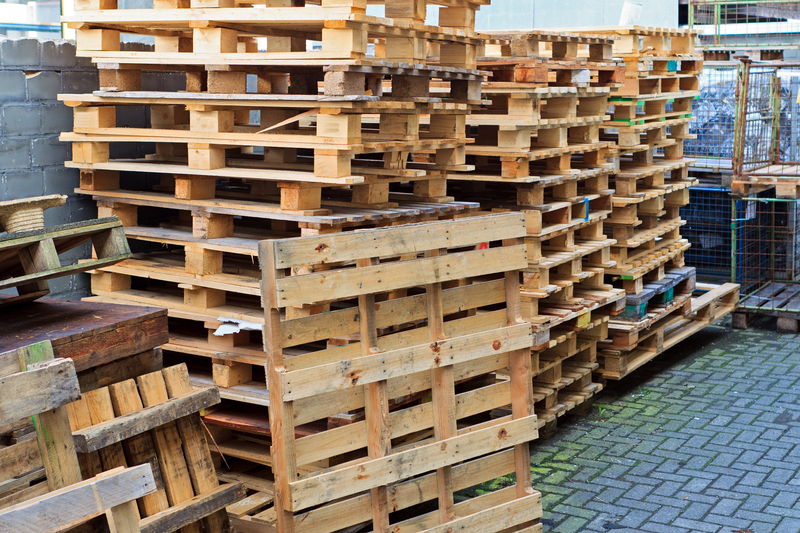Inspire Eco-conscious Behaviors with School Recycling Hacks
Teaching environmental responsibility in schools is more important than ever. Instilling eco-conscious behaviors from an early age not only helps the environment but also fosters lifelong stewardship. Let's explore practical and creative school recycling hacks that motivate both students and staff to build green habits, reduce waste, and promote a sustainable culture.

Why Focus on Eco-Consciousness and School Recycling?
Schools are microcosms of society. What students learn and practice within classrooms can have a ripple effect on their families and communities. Eco-conscious behaviors in schools--from reusing materials to engaging in recycling programs--not only protect the planet but also create a responsibility-centered school environment where everyone feels empowered to make a difference.
- Hands-on learning: Recycling projects support experiential and inquiry-based learning.
- Environmental impact: Schools generate significant waste. Reducing, reusing, and recycling can dramatically lower that footprint.
- Leadership development: Eco-friendly initiatives give students the chance to lead and inspire others.
Start with a School-Wide Eco Audit
The first step to successful school recycling hacks is understanding where your school stands. Organize a waste audit to analyze where most waste is generated and what materials are being thrown away. Involve students, teachers, and janitorial staff in this process: ask students to tally and categorize waste from lunchrooms, classrooms, restrooms, and offices.
Tips for an Effective Eco Audit:
- Assign roles to students for sorting and recording waste.
- Make the audit visual--create graphs and posters with your findings.
- Celebrate successes and set realistic, measurable goals for improvement.
Simple but Powerful School Recycling Hacks
1. Color-Coded Recycling Stations
Color-coded bins make it easier for students to identify where specific types of waste belong. Use bold labels and simple icons for plastics, paper, metals, and compostables. Place these bins in high-traffic areas such as hallways, cafeterias, and entrances.
- Encourage teachers to remind students daily to use the correct bins.
- Appoint student "Recycling Monitors" to help and educate others during lunch and recess.
- Make an interactive bulletin board tracking the amount recycled by each class or grade. Offer eco-friendly incentives for progress.
2. Creative Reuse Centers
Set up a Reuse Center where students, teachers, and parents can donate and pick up gently used school supplies, books, craft materials, or even uniforms. This encourages a culture of sharing and reduces the need to buy new items.
- Launch regular swap days for clothing and school supplies.
- Organize a "Back-to-School" exchange at the start of each term.
- Feature creative projects from repurposed materials in a monthly "Eco Expo".
3. Upcycling Competitions and Art Projects
Ignite creativity with regular upcycling challenges. Invite students to transform recyclables--cardboard boxes, bottles, newspapers--into art, useful gadgets, or educational displays. Reward the most innovative and practical ideas.
- Host a school-wide Upcycled Art Fair for parents and visitors.
- Display projects throughout the school to inspire ongoing participation.
- Extend challenges to digital platforms with photo or video competitions.
Integrating Recycling Hacks into the Curriculum
Meaningful learning happens when topics are woven into daily lessons. Tie eco-conscious habits and recycling hacks for schools into science, math, art, and language arts activities.
Curricular Ideas:
- Graph and analyze the school's recycling data in math lessons.
- Research the science of decomposition and materials recovery in science classes.
- Write persuasive essays or design posters on the importance of recycling for language arts or art.
- Explore local recycling facilities through virtual or in-person field trips.
Empower Students as Eco-Leaders
Involve students in leadership roles. Start a Green Team or Eco-Club responsible for recycling education, programs, and outreach. Let students run assemblies, design campaigns, and even represent the school at local environmental events--empowering them is key to lasting behavior changes.
Family and Community Involvement
Bringing families and the community into your eco-conscious mission magnifies impact. Share regular newsletters featuring recycling tips, info on local recycling centers, and highlights of student projects.
- Organize community recycling drives that include electronics, textiles, and hazardous household waste.
- Partner with local businesses for sponsorship of bins, prizes, or educational materials.
- Invite parents and community members as guest speakers or judges for upcycling contests.
Tackle Hard-to-Recycle Items
Some materials can be challenging to dispose of responsibly. Educate students on proper disposal routes for:
- Old electronics and batteries.
- Markers, pens, and art supplies (many brands offer take-back or recycling programs).
- Ink cartridges, which many stores will recycle or refill.
- Plastic wraps and films, often accepted at grocery store drop-off points.
Pro tip: Collaborate with local waste management companies and charities that accept specific difficult items. Map out collection points and share with your school community.
Leverage Technology for Recycling Awareness
Use technology to enhance engagement in eco-friendly school practices and recycling:
- Track recycling progress through digital dashboards or school apps.
- Post student-created recycling how-to videos on school social media and websites.
- Launch classroom "eco challenges" using online leaderboards.
- Create QR codes linking to recycling information, attached to collection bins around school.
Boost Motivation with Recognition and Rewards
Positive reinforcement is essential to cultivate lasting eco-conscious habits. Recognize individual, classroom, or school-wide achievements in recycling and sustainability.
- Issue "Green Champion" certificates to students who go above and beyond.
- Incorporate sustainability awards into end-of-year ceremonies.
- Offer special privileges, eco-outings, or green-themed prizes.
Build Resilience: Troubleshoot and Adapt
Not every recycling hack will work perfectly from day one. Encourage honest feedback from students and staff about what works, what doesn't, and how to improve. Use suggestion boxes or discussion groups to crowdsource new ideas. Resilience and adaptability are core to a sustainable school culture.
Frequently Asked Questions: School Recycling and Eco-Conscious Behaviors
Why is it important to teach recycling in schools?
Schools are ideal places to build lifelong eco-conscious behaviors. Early exposure helps students develop habits and values that protect the environment for the future. Recycling education in schools also raises awareness about waste and resource management among staff and families.
How can teachers inspire eco-friendly habits outside the classroom?
Encourage students to start at home by setting up recycling stations, reducing single-use plastics, and getting creative with upcycling projects. Teachers can involve parents through newsletters, at-home activities, and community recycling events.
What are some low-cost school recycling hacks?
- Repurpose boxes, jars, or containers for classroom storage.
- Start a paper reuse tray for scrap drawing and notes.
- Use digital documents to reduce printing and paper use.
- Host "bring your own reusable bottle" challenges to cut down on plastic waste.
How can students be motivated to recycle more?
Make eco-friendly actions fun and social. Competitions, rewards, leadership roles, and the chance to showcase creativity all increase intrinsic and extrinsic motivation.

Case Studies: Successful Eco-Conscious School Programs
Case Study 1: Green Champions Elementary
At Green Champions Elementary, the Green Team leads a "1-2-3 Sort" program. Each classroom receives three bins (compost, recycling, landfill), and student monitors check bins daily for accuracy. Over the school year, landfill waste dropped by 45%, while participation in eco-club tripled.
Case Study 2: Upcycle High School
Upcycle High hosts an annual "Maker Faire" where students transform recyclables into tech gadgets, wearables, and decor. Proceeds from upcycled product sales are donated to local environmental charities. This program sparked innovation and raised thousands for green causes.
Conclusion: Nurture Eco-Conscious Change with Simple Hacks
Cultivating eco-conscious behaviors in schools is not just a trend--it is a vital investment in the future. With engaging recycling hacks, creative projects, curriculum integration, and whole-community involvement, schools can spark enthusiasm and responsibility that students will carry with them for life.
Start today with one small change and watch a wave of positive environmental action ripple through your classrooms, campuses, and communities. Together, we can inspire a greener, cleaner, and more sustainable future for all.